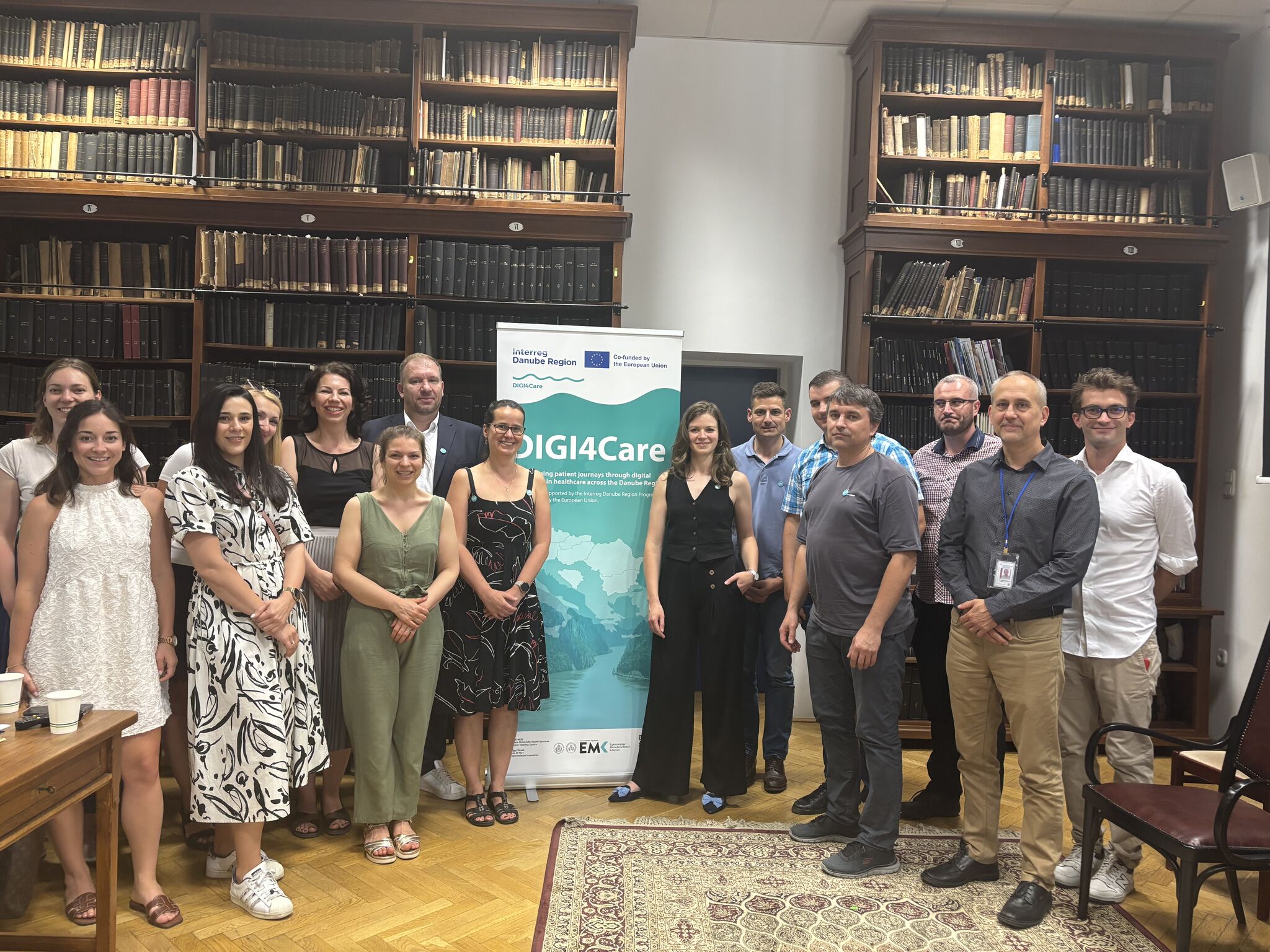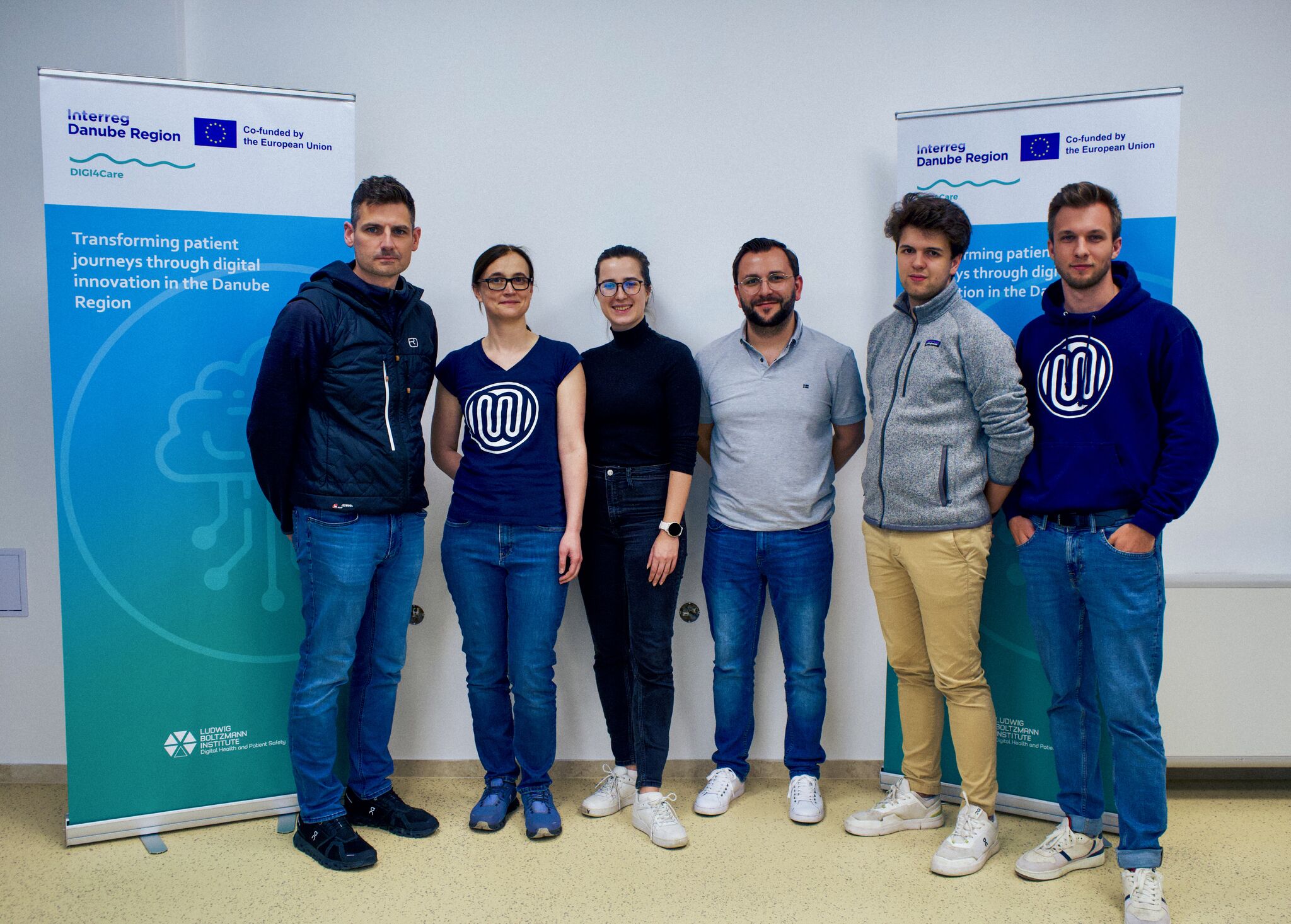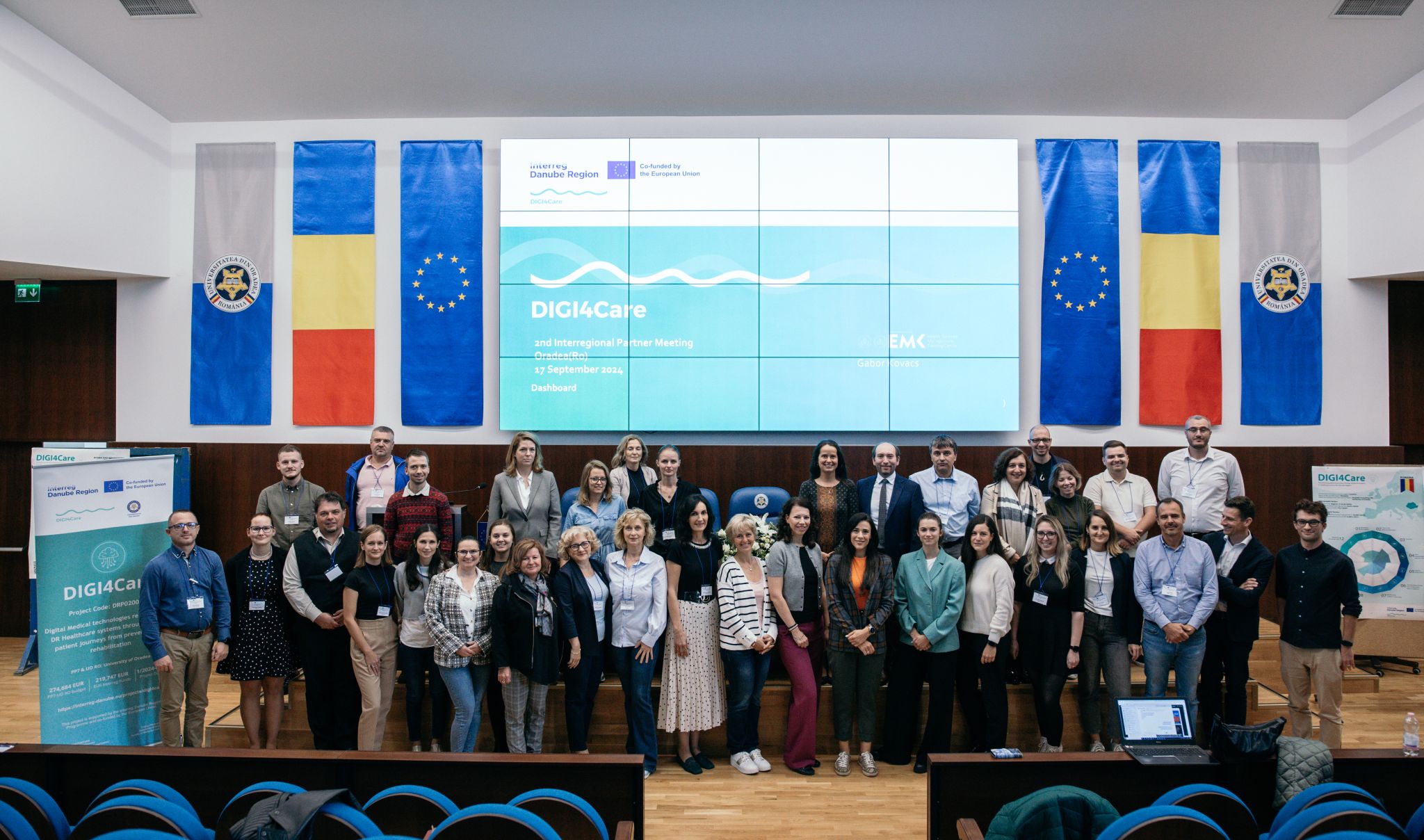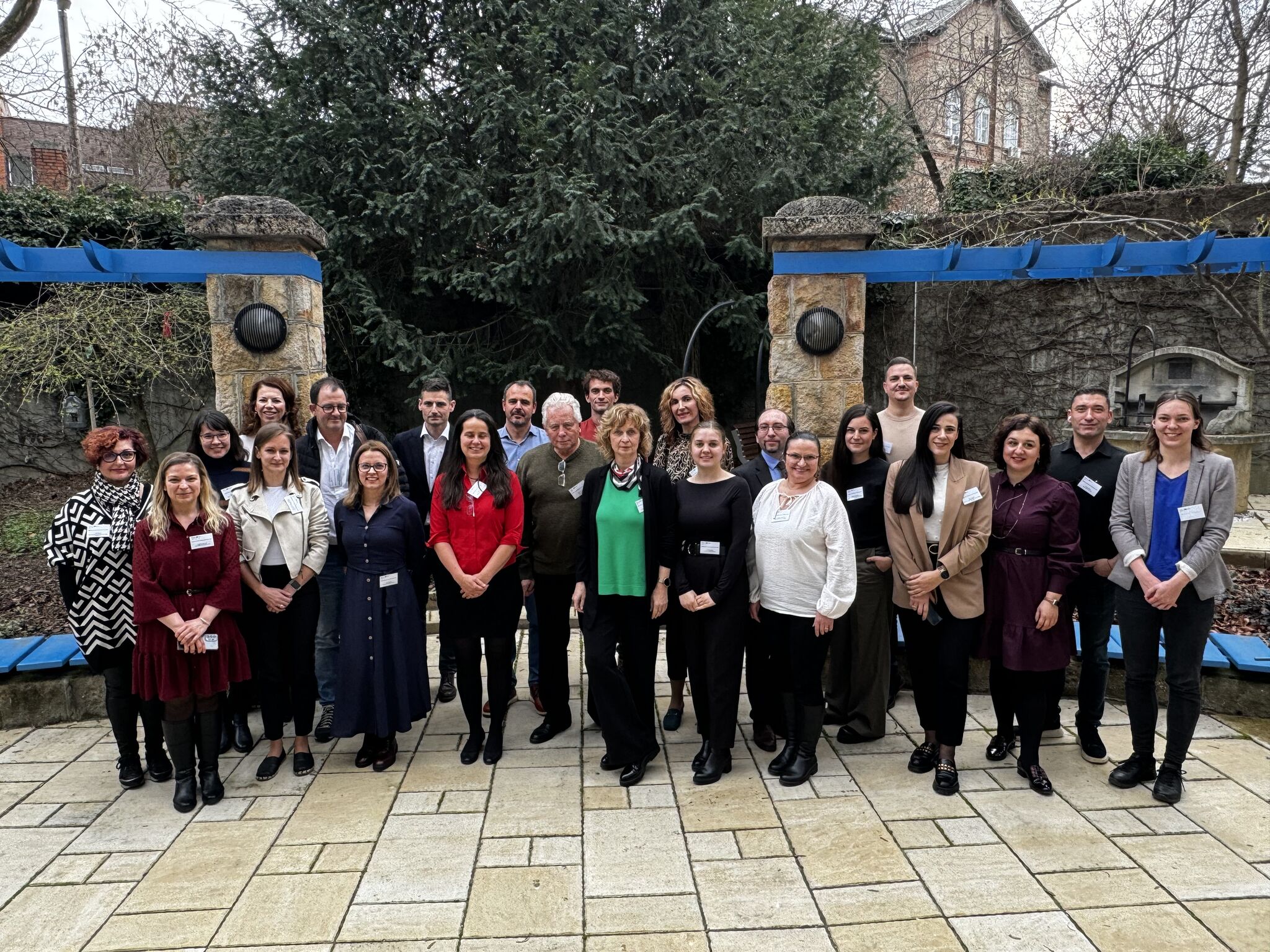
The DIGI4Care journey
DIGI4Care - Transforming patient journeys through digital innovation in healthcare across the Danube Region
DIGI4Care, a new initiative of the EU Strategy for the Danube Region (Danube Region Programme), aims to redefine patient pathways through innovation and collaboration by testing, validating and strategically integrating digital and AI solutions. By fostering collaboration, knowledge sharing and innovation capacity, the project aims to bridge the digital divide between newer and older European Union Member States, as well as non-EU countries in the Danube region.
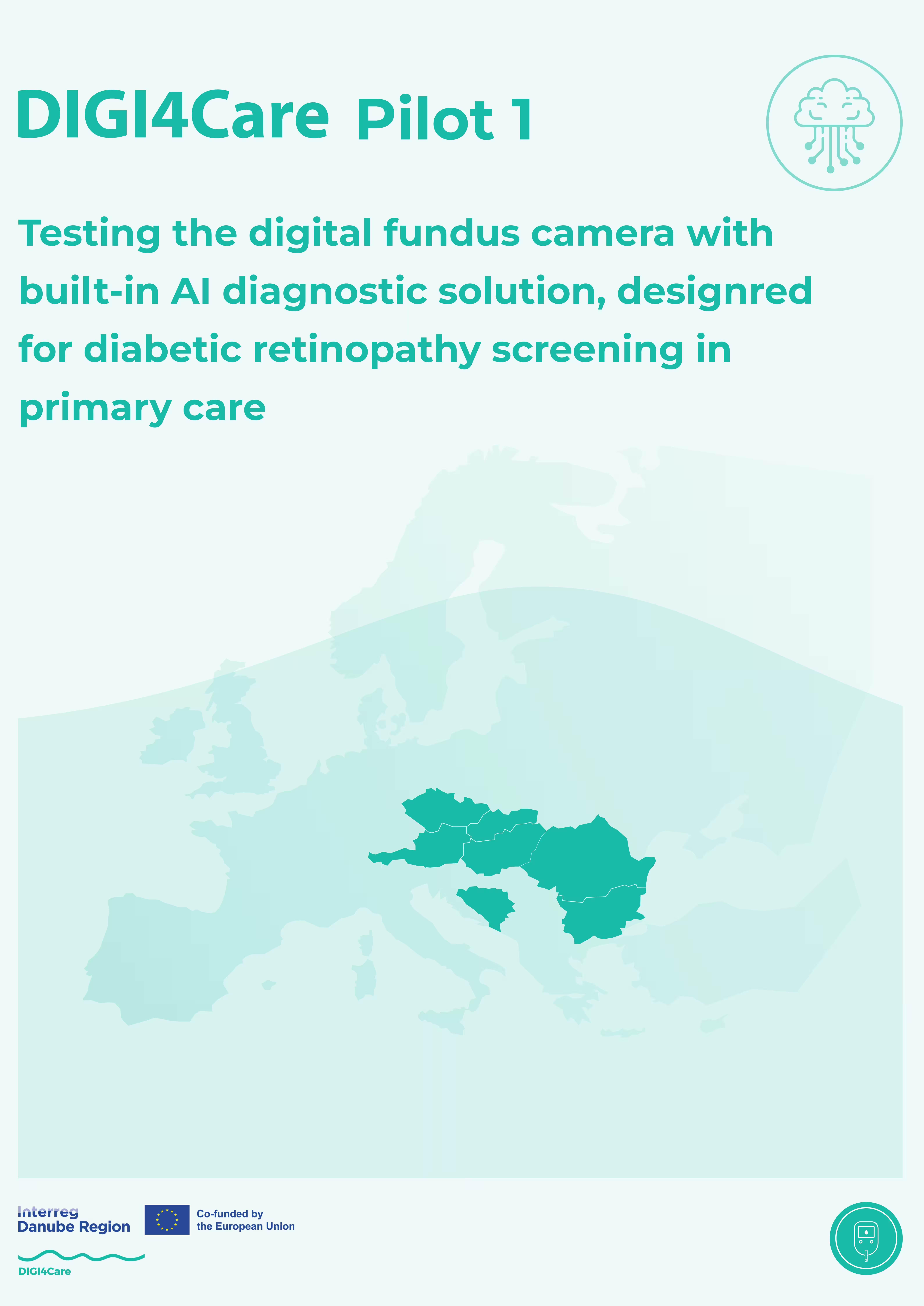
Pilot 1: Digital Health Technologies for Prevention and Screening
Goal:
To enhance early detection and prevention of diabetic retinopathy and cardiovascular diseases by integrating AI-powered screening technologies into patient pathways.
Key Activities:
Implementation of AI Technology: Deploy certified AI software for diabetic retinopathy screening at screening locations, GP offices, and diabetology outpatient centers across four countries (SOTE_HU, UO_RO, DHI_BG, CEE_HPN).
Use of Fundus Cameras: Capture and analyze retina images to identify diabetic retinopathy in at-risk patients.
Integration of Wearable Cardiovascular Diagnostic Devices: In Bulgaria, high-risk patients will be monitored using a wearable device measuring ECG, heart rate, oxygen saturation, and more. Data will be analyzed through a telemedicine center with remote monitoring support.
Cardiovascular Screening Expansion: Patients identified with diabetic retinopathy will be referred to cardiovascular assessments, with some countries integrating direct access to cardiology care.
Atrial Fibrillation and Hypertension Screening: High-risk individuals will be additionally screened using wearable diagnostic tools.
Expected Outcomes:
Improved early detection of diabetic retinopathy and cardiovascular diseases.
Increased patient access to ophthalmology and cardiovascular care, particularly in regions with limited specialist availability.
Enhanced efficiency in screening through AI-powered pre-screening and telemedicine integration.
Insights for future expansion of digital screening models, including potential use of transtelephonic ECG.
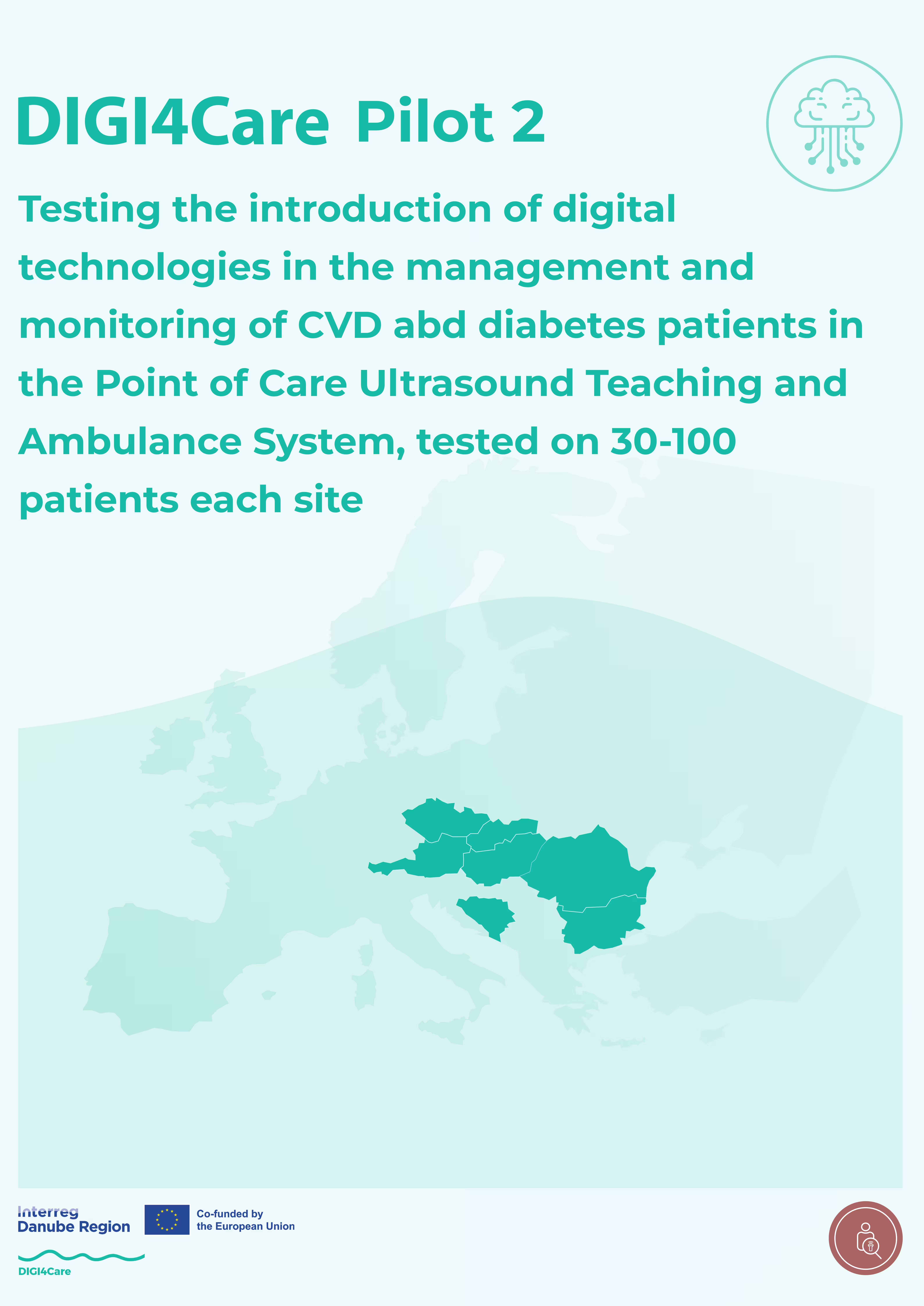
Pilot 2: Tele-ultrasound Training for Emergency Medical Services
Led by LBI_AT with the participation of SOTE_HU, aims to compare the effectiveness of teledidactic and hands-on training for point-of-care ultrasound (POCUS) skills in prehospital emergency medical services (EMS).
Key objectives:
- Develop and implement a teledidactic POCUS training program.
- Assess the effectiveness of teledidactic training compared to traditional hands-on training.
- Integrate POCUS into EMS workflows to improve patient care.
Methodology:
- Recruitment and Randomization: EMS providers will be recruited and randomly assigned to either a teledidactic or hands-on training group.
- Training: Both groups will receive standardized training, with the intervention group participating in teledidactic sessions and the control group receiving hands-on training.
- Assessment: Participants will be assessed using the Objective Structured Assessment of Ultrasound Skills (OSAUS) score.
- Clinical Implementation: Trained EMS providers will utilize POCUS in real-life emergency situations.
By successfully implementing this pilot, we aim to advance the use of POCUS in EMS and improve patient outcomes.
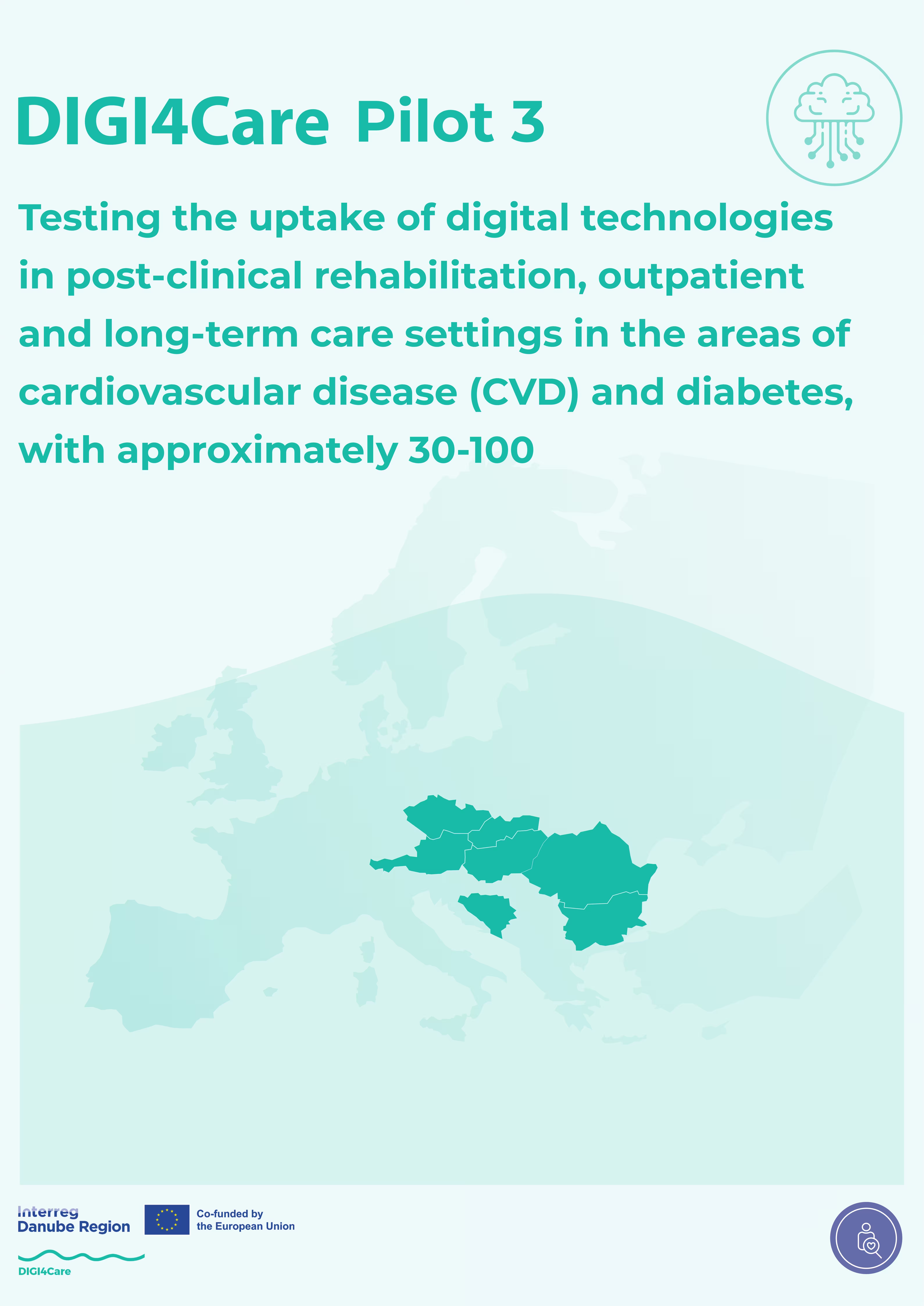
Pilot 3: Digital Health for Post-Clinical Rehabilitation
Goal: To improve patient outcomes and reduce healthcare costs by introducing digital health technologies into post-clinical rehabilitation for CVD and diabetes patients.
Key Activities:
- Patient Recruitment: Recruit 30-100 patients per participating site.
- Digital Technology Implementation: Introduce smart devices (smartwatches, blood pressure monitors, smart scales) and AI-powered tools (e.g., thermography AI, Doppler device) into patient care.
- Remote Monitoring: Utilize a remote patient monitoring system to track patient data and facilitate communication between healthcare providers and patients.
- Data Collection and Analysis: Collect data on patient outcomes, including clinical parameters, physical activity levels, and cardiovascular events.
- Evaluation: Assess the effectiveness of digital interventions in improving patient adherence, reducing hospitalizations, and enhancing quality of life.
Expected Outcomes:
- Improved patient outcomes and quality of life.
- Reduced healthcare costs.
- Enhanced patient engagement and self-management.
- Identification of opportunities for scaling up digital health interventions.
By leveraging digital health technologies, Pilot 3 aims to transform post-clinical rehabilitation, making it more accessible, efficient, and effective.
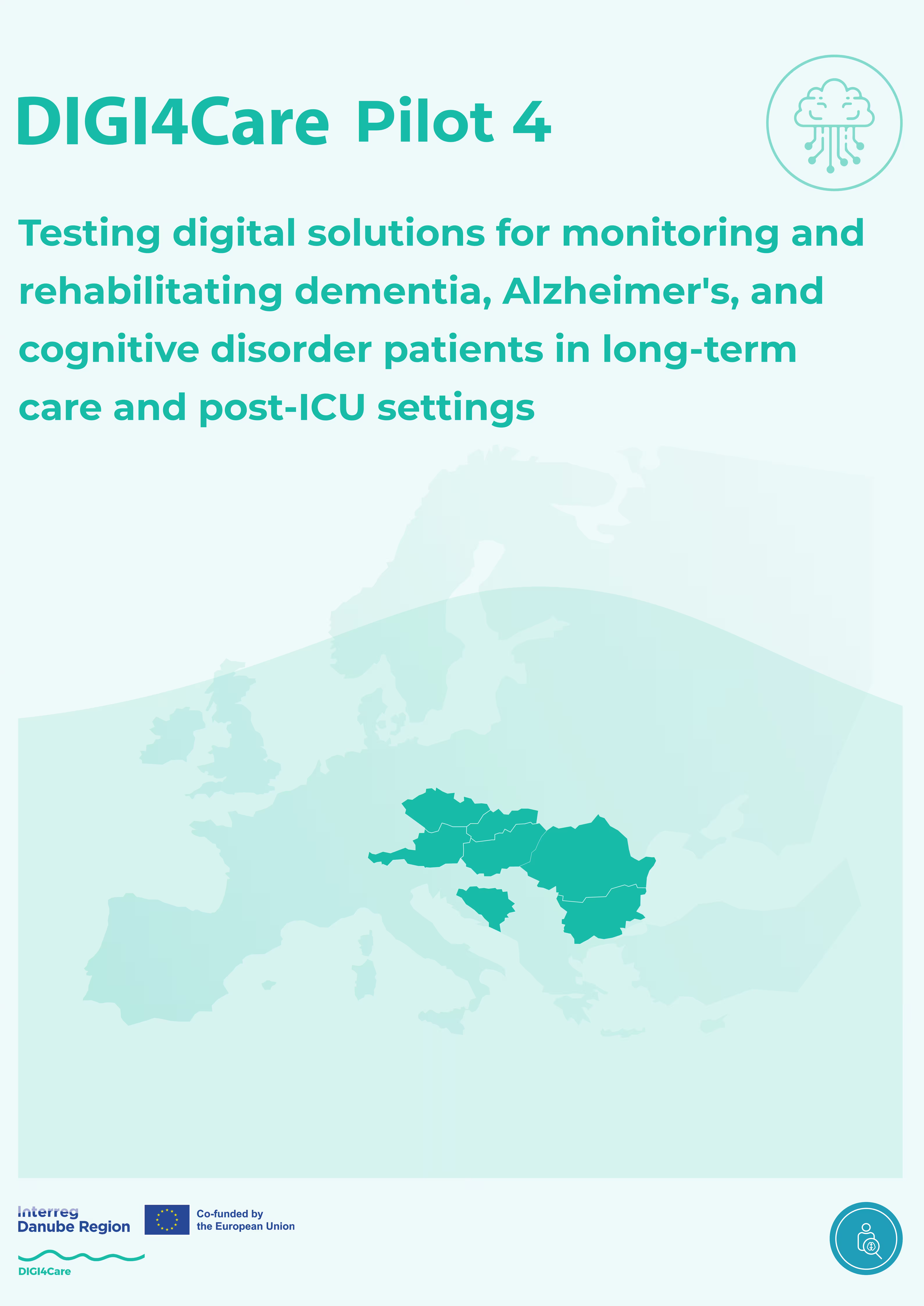
Pilot 4: Digital Solutions for Dementia and Cognitive Disorders
Goal: To improve the quality of care for patients with dementia and cognitive disorders through the use of digital technologies.
Key Activities:
- Patient Recruitment: Recruit patients in long-term care facilities and post-ICU settings.
- Technology Implementation: Introduce digital tools such as remote monitoring devices, social robots, and cognitive rehabilitation tools.
- Data Collection and Analysis: Collect data on patient outcomes, including cognitive function, physical activity, and social engagement.
- Evaluation: Assess the effectiveness of digital interventions in improving patient quality of life, reducing caregiver burden, and enhancing overall care delivery.
Expected Outcomes:
- Improved cognitive function and quality of life for patients with dementia and cognitive disorders.
- Reduced caregiver burden and increased caregiver satisfaction.
- Enhanced early detection of cognitive decline and timely intervention.
- Development of scalable and sustainable digital health solutions for long-term care.
By leveraging digital technologies, Pilot 4 aims to revolutionize the care of individuals with dementia and cognitive disorders, providing innovative solutions to address the growing challenges in this field.
DIGI4Care - Transforming patient journeys through digital innovation in healthcare across the Danube Region
Our project aims to redefine patient pathways through innovation and collaboration by testing, validating and strategically integrating digital and AI solutions.
By fostering collaboration, knowledge sharing and innovation capacity, the project is designed to bridge the digital divide between newer and older European Union Member States, as well as non-EU countries in the Danube region.
Ensuring effective integration of digital technologies in healthcare
Beyond the introduction of new technologies, DIGI4Care focuses on assessing the feasibility, benefits and added value of integrating digital technologies into healthcare processes such as technology assessment, financing models, data management, ethical considerations and workforce skills development. This approach ensures that digital solutions are effectively integrated into clinical practice and that healthcare professionals are equipped with the necessary skills to implement them successfully.
From prevention to rehabilitation: piloting digital solutions for common diseases
Four pilot actions will be designed, implemented and evaluated jointly and will focus on introducing digital technologies for prevalent conditions such as diabetes, cardiovascular disease, Alzheimer's disease, dementia and other cognitive disorders. DIGI4Care harnesses the power of technology to improve the quality of healthcare services and patient outcomes throughout the healthcare continuum, from prevention, screening, primary and outpatient care to post-clinical, long-term and rehabilitation care.
Ensuring long-term success with a comprehensive digital framework
The project also includes the development of a digitally enabled integrated care model and action plans to facilitate the seamless integration of digital technologies throughout the patient journey. These efforts will be supported by a digital knowledge platform and a radar system to foster ongoing sharing of digital health technologies. In addition, a pilot-validated data management model ensures comparability of results and facilitates future collaboration, while a dedicated dashboard enables data-driven decision-making for wider adoption.
Equipping, educating and empowering: tools for sustainable healthcare improvement
In addition, DIGI4Care is creating a comprehensive training and capacity building toolbox, enhancing relevant university curricula, and providing policy recommendations to promote widespread support for digital technologies in healthcare. These key outputs aim to ensure long-term sustainability and transferability, enabling region-wide dissemination and lasting positive impact.
News & Events
Read the most recent updates and explore the upcoming events.
Project overview
Need any help? Contact us!

